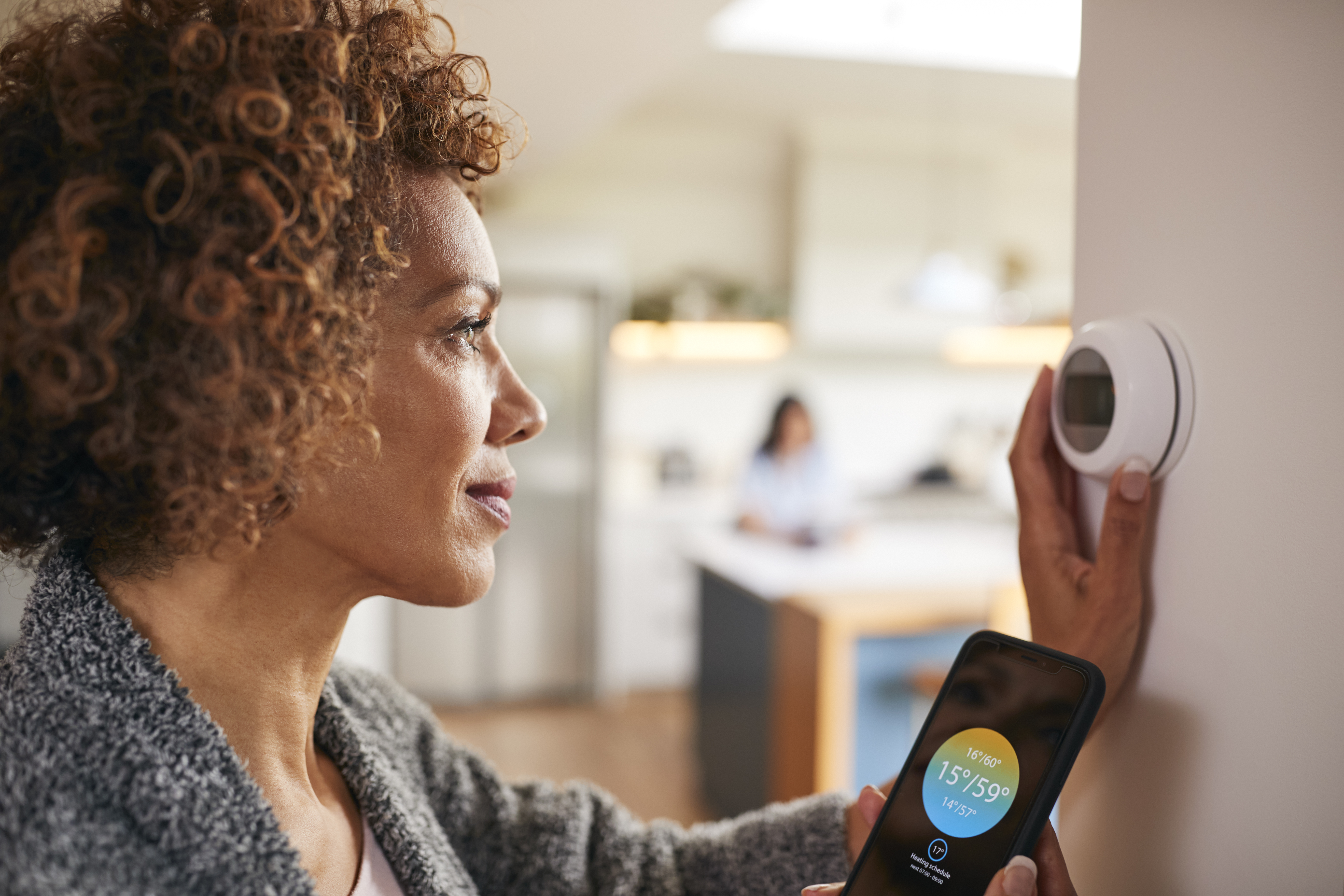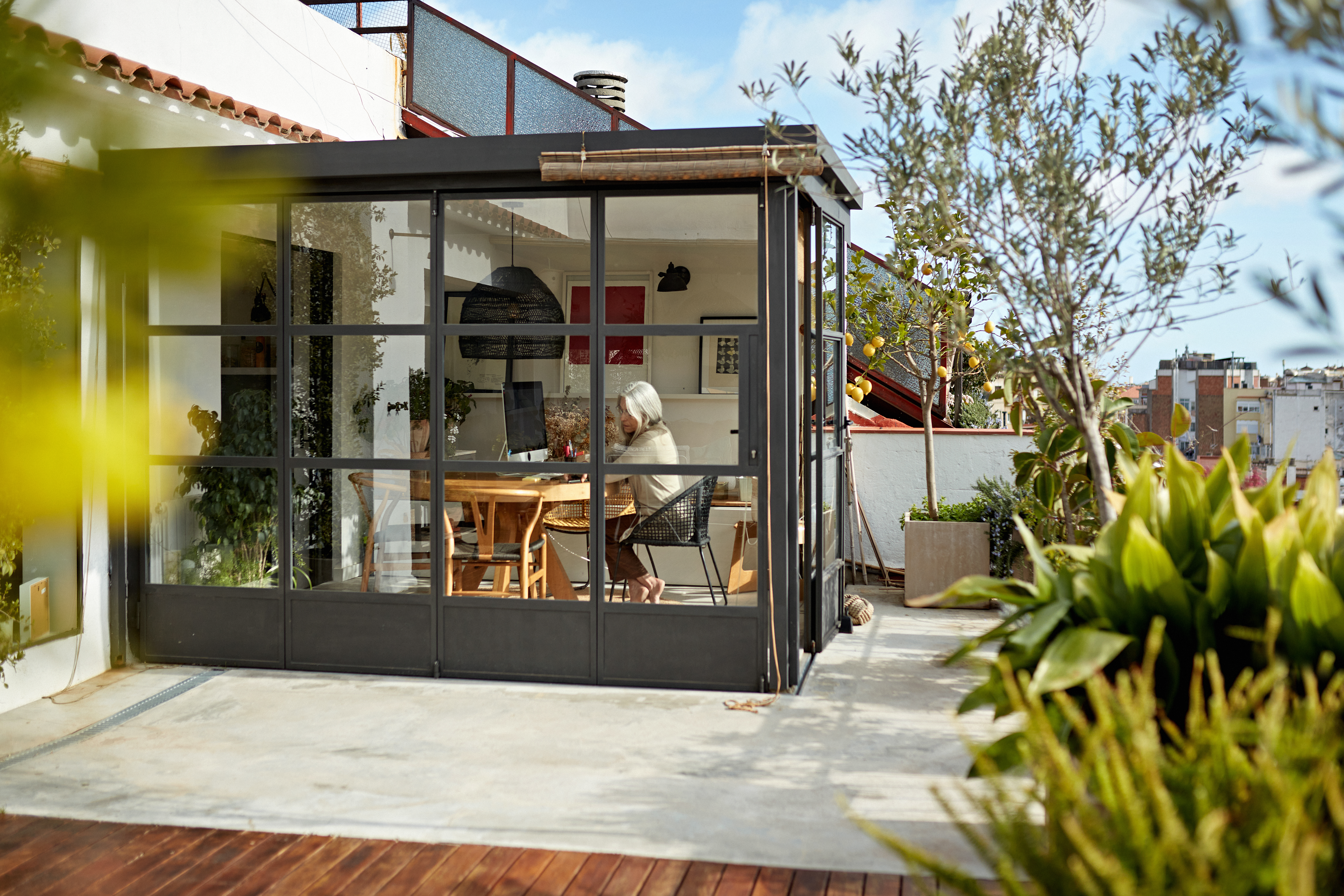What Size Generator Do I Need for My Home?

Whether you live in a storm-prone area that frequently experiences power outages, or you just want to be prepared in case the power lines go down around your house, we’re here to help you figure out what size generator you need.
To put it into perspective, the average American household loses power at least once or twice a year. According to the U.S. Energy Information Administration, the power stays down for an average of four hours during each outage. Outages caused by extreme weather, such as hurricanes or heavy snowfall, can last even longer. (And if you’ve ever been left without power for an extended period of time, you know how valuable having a generator can be).
When these outages happen, inconvenience doesn’t even begin to describe the effects of having no power. In addition to being unable to run your day-to-day life, other issues such as spoiled food and the potential for frozen pipes and water leaks start to pop up left and right. Until recently, though, homeowners haven’t had many options to address the issue.
Fortunately, backup generators that can power entire houses have become readily available to homeowners. In case you’re not familiar, backup generators are standby electrical systems that operate automatically. When a utility outage happens, the generator kicks on immediately and begins to power the appliances in the home. This includes:
- Refrigerators
- Freezers
- Mobile phones
- Televisions
- Computers
- Fans
- Portable heaters and more
Affordable, accessible, and easy to install, backup generators can offer peace of mind and help homeowners prevent the inconveniences—and dangers—that can come with utility outages.
In this guide, we’ll discuss a few of the typical questions customers have when shopping for a generator, and help you determine how to select the best size to power your home.
Overview: The Types of Home Generators Available to You
If you’re interested in purchasing a generator, the first step is figuring out which type you need. There are five main options, and they vary by price, use, and watts powered:
Recreational Inverters
The go-to option for plugging in electronic appliances at a tailgate, powering tools at an on-site job, or taking with you while camping, boating or driving cross-country in an RV. (You probably won’t need this one for your home, but it’s good to know!) Inverter generators can typically power up to 2,000 watts and usually cost between $400 and $1,000.
Mid-Sized Inverters
Can power up to 3,500 watts and typically cost between $1,000 and $1,700.
Portable Generators
As their name implies, these generators are helpful in emergency situations due to their portability. Though not as long-lasting as the standby generator, they’re good to power a few important appliances for about 8 hours. Portable options typically power up to 7,500 watts and cost between $700 and $2,800.
Large Inverters
Can power up to 7,500 watts and will cost between $1,400 and $4,000.
Home Standby Generators
Permanently installed, these use gas to operate and will kick on in the event of a blackout for round-the-clock power. Consider this the heavy-duty option, ideal for frequent or lengthy outages. Standby generators can power up to 2,000 watts and cost between $2,000 and $6,000.
To get an idea of which type of generator is right for your home, think about how often power outages are a problem for you, and how often they last.
What Type of Generator is Best to Power My Home?
If You Have Frequent Power Outages
Frequent power outages are frustrating. If they’re prolonged, they can create havoc for your home. This may be the case if you live in an area that is prone to storm damage such as frequent hurricanes and tornadoes. This could also happen if you live in an area where there is a steady stream of construction going on. Generators to consider for this type of power outage include home standby models, large inverters, and portable generators. Each of these generators has ample power to run your entire household.
If You Have Occasional Power Outages
If you live in an area where outages are occasional and not usually sustained, you can get away with purchasing a smaller (and less expensive) generator. Your options include large inverters and portable generators. If you don’t mind having to pull your generator out of storage and hook it up during the down times, you can save thousands.
If You Rarely Experience Power Outages
If you rarely lose power, you don’t need a serious backup generator, but it is nice to have peace of mind. In that case, your best options are a mid-sized inverter or a recreational inverter, both of which can run your refrigerator and are compact enough that they won’t take up a considerable amount of space.
What Size Generator Does My Home Need, in Terms of Watts/Power?
Once you’ve calculated the wattage of your home, you can start shopping for generators. The sizing guide below can help you determine what size generator you should look for, based on how much power you’ll need:
Assuming you need a standby or portable generator with a decent inventory of power, you’ll typically shop for your generator by wattage. Start by answering these three questions:
- Do you use city or well water? Well pumps require a larger volt generator (240 volts or above).
- What heating system does your home use? While gas and forced air systems can use small generators (around 2500 watts), homes with electric furnaces or heat pumps will require systems of 15,000 watts or more, and sometimes cannot be powered by a single backup generator.
- What type of water heater system does your home have? Gas and oil heaters use very little power and will require a smaller generator. Electric heaters, meanwhile, need a generator with at least 4,500 watts.
To figure out what size of generator you need, just add up the wattage of everything you would want to power during an outage. And then you’ll have your answer.
You’ll find the wattage listed on the appliance itself, if not in your user’s manual, on the box (if you like to keep them in your basement or attic), as well as on the company’s website. If you’re unsure, call the customer service number of the appliance manufacturer.
Here are typical things that contribute to the overall power wattage of your home, according to Wholesale Solar (and some that are very easy to forget)
In the Kitchen
- Refrigerator: 1200-1411 Watts
- Standalone freezer: 1080-12400 Watts
- Microwave: 1000 Watts
- Oven (Electric): 1200 Watts
- Coffee Machine: 1000 Watts
In the Media Room/Home Office
- TV: 150-200 Watts
- Video Game Console: 150 Watts
- Cable Box: 35 Watts
- Desktop Computer: 200-500 Watts
- Laptop: 100 Watts
- Router: 7 Watts
- Smart Phone Charger: 6 Watts
Throughout the House
- Box Fan: 200 Watts
- Ceiling Fan: 120 Watts
- Central Air: 3250-2800 Watts
- Window AC Unit: 900-3250 Watts
- Space Heater: 1500 Watts
- Water Heater: 4500 Watts
- Tankless Water Heater: 18000 Watts
- Lightbulbs: 10-100 Watts
Keep in mind that refrigerators and similar appliances surge in wattage as they turn on. Even when turned off, devices that are plugged in will draw power.
Where to Buy a Generator
Once you’ve calculated the wattage of your home, you can start shopping for generators. Here are a few reputable options to choose from:
Amazon
Yes, the “Everything Store” does in fact sell generators, too. Purchasing a generator from Amazon is a great option for anyone who has a deep understanding of what type they want, and just needs to find a place to purchase it.
When it comes to selection, Amazon actually does very well for users who want smaller generators. The site offers a wide assortment of portable units, power stations, and more. While shoppers won’t find full-size home standby generators on the site, Amazon carries high-quality brands like Westinghouse, and offers free Prime shipping on many models that are available.
Lowe’s or Home Depot
Home improvement stores like Lowe’s and Home Depot are the place for shoppers who need assistance buying the right sized generator for their home. These stores carry both large, full-size generator models, and also smaller recreational and portable generators. Shopping at these stores offers two big perks.
The first major benefit is that you’ll have knowledgeable, hands-on assistance from experienced sales reps. These people understand the ins and outs of each backup generator model, and will help you decide which is best for your home. They also have the forklift needed to move the generator from the warehouse to your truck bed. (You just need to make sure you have a truck big enough to transport the generator, and someone waiting at home to help you lift it up again).
The second benefit is the ability to examine each generator in-person. Some people don’t realize how large generators can be, for example, or that a similar model has different, more appealing features.
Shopping in a physical store empowers buyers with more information, and makes for a smoother and more streamlined buying experience. Because of this, it’s the go-to choice among first-time generator buyers, or those who want the confidence of knowing they purchased the right model.
Niche Generator Specialty Stores
Some cities (often those who have a bigger market for generators) actually have entire stores dedicated solely to selling backup generators. These stores typically carry a wide selection of generators designed for both new construction projects and home retrofits. Like Lowes or Home Depot, they’ll provide skilled and knowledgeable salespeople to help you decide which model you need. They may even provide financing options.
Why You Should Consider Buying a Home Backup Generator
Whether you experience frequent or occasional power outages, a backup generator can offer you the peace of mind that comes with knowing your home will keep running, even if the utilities around you go down. Are you interested in getting a generator to power your home? Click below to see if you qualify (not based on your credit score) to pay for it through Ygrene financing.
Backup generators are just one of the many home and commercial upgrade projects that Ygrene can finance through PACE funding. If you have questions about sizing or installing a generator, where to find a contractor, or how to secure financing for your other home improvement projects, contact the team here at Ygrene. We are happy to help!




